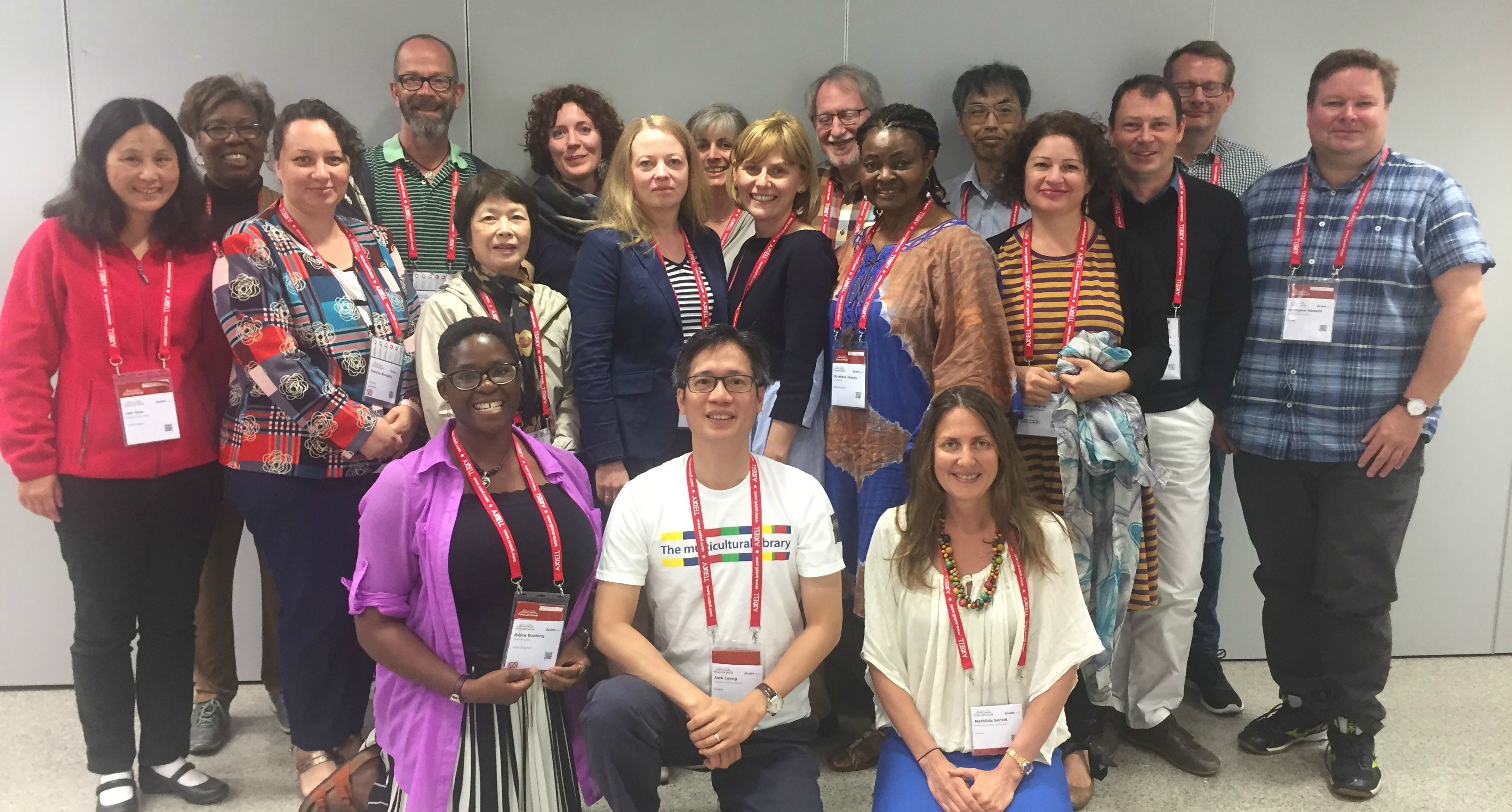Learn about the benefits of constructing a multi-year internship from a MLIS student's perspective.

IFLA/UNESCO manifesto & toolkit: Creating multicultural libraries
As the out-going chair of the IFLA Library Services for Multicultural Populations Section, I shared this manifesto with participants at the IFLA 2017 conference, held in Wrosclaw, Poland last August. This interactive session, Multicultural Library Manifesto Toolkit – Case studies and illustrations from a global perspective – Library services for multicultural populations, attracted over 100 participants and featured nine short presentations followed by in-depth roundtable conversations with presenters.
In case you missed the session and you are interested in creating multicultural libraries …

Part I: The manifesto
Approved by the IFLA Governing Board in 2006 and adopted by UNESCO in 2009, the Multicultural Library Manifesto is guided by the principle that “each individual in our global society has the right to a full range of library and information services.” Libraries should, therefore,
- serve all members of the community without discrimination based on cultural and linguistic heritage;
- provide information in appropriate languages and scripts;
- give access to a broad range of materials and services reflecting all communities and needs;
- employ staff to reflect the diversity of the community, who are trained to work with and serve diverse communities.
Library and information service in culturally and linguistically diverse contexts includes providing services to all types of library users as well as underserved communities. Indeed, the Manifesto calls for special attention to frequently marginalized groups such as minorities, asylum seekers and refugees, temporary residents, migrant workers, and indigenous communities. Currently, the Manifesto has been translated into 23 other languages.
Library staff members are active intermediaries between users and resources, thus professional education and continuing training should be provided in order to facilitate cross-cultural communication and prevent discrimination. Ideally, library staff should strive to reflect the multicultural nature of their community. The Manifesto includes an expectation that libraries will adopt an integrated service approach such that the core activities of the library are central rather than ‘separate’ or ‘additional.’ Moreover, these services should be designed to meet local or specific needs, which can be achieved by working cooperatively with the appropriate community.
Libraries in culturally diverse societies should focus on a number of elements that relate to information, literacy, education, and culture such as promoting awareness of the positive value of cultural diversity, fostering cultural dialogue, encouraging respect for and preservation of linguistic diversity, supporting the preservation of oral traditions, and supporting the inclusion and participation of people from all cultural backgrounds. This can be achieved through a number of activities such as developing culturally diverse and multilingual collections and services, allocating resources for the preservation of cultural expression, program development (e.g., focusing on newcomers), linguistically appropriate access systems, and outreach.

Jack Leong (centre) and participants in the IFLA 2017 interactive conference session, Multicultural Library Manifesto Toolkit – Case studies and illustrations from a global perspective – Library services for multicultural populations.
Part II: The toolkit
The IFLA/UNESCO Multicultural Library Manifesto Toolkit gives practical approaches on how libraries can apply the concepts outlined in the manifesto. It has six components:
- Implementation kit
- Community analysis and needs assessment
- Developing a mission statement
- Decision-making template
- Understanding the manifesto: workshop handbook + slide presentation
- Core actions: toolkit checklist
The Implementation Kit is designed to support multicultural service development by assisting libraries in planning, applying, and sustaining the principles and actions described in the Manifesto. It explains each section of the Manifesto and includes questions, templates, and strategies to help libraries understand, apply, and promote multicultural services appropriate to their community. Furthermore, it also includes a number of the approaches recommended in the Multicultural Communities: Guidelines for Library Services (3rd edition, 2009).
The community analysis and needs assessment provides a template to help libraries identify current and potential services or information resources that are or could be made accessible through identifying the cultures, languages, and information needs in your community.
Developing a mission statement helps a library focus on the information, literacy, education, and culture needs of its community. The template provided helps libraries focus on these aspects in relation to specific missions identified by the manifesto.
The decision-making template is designed to help libraries make informed decisions as part of their planning and policy-development initiatives by defining missions, objectives, priorities, and services in relation to cultural diversity. Plans and policies should be informed by user needs analysis such as conducted through the community analysis and needs assessment.
A workshop handbook and slide presentation help library professionals conduct workshops on the key elements of the Manifesto and the objectives of multicultural service.
The Core Actions checklist encourages libraries to apply and evaluate the information, strategies, and tools contained in the Implementation Kit against each of the Core Actions listed in the IFLA/UNESCO Multicultural Manifesto. Through the systematic use of the Implementation Kit, libraries can develop a comprehensive understanding of the degree to which multicultural services are a central aspect of their operations, and where opportunities continue to exist for further planning, action, and understanding.
Jack Leong is currently the director of the Richard Charles Lee Canada-Hong Kong Library at the University of Toronto. He chairs the International and Community Outreach Committee at the University of Toronto Libraries, which oversees the library’s visiting and exhibit programs.


